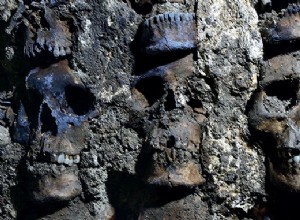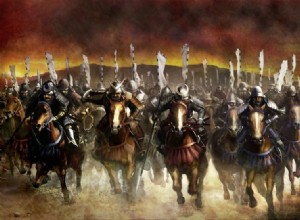Detail of the Huei Tzompantli, an Aztec skull tower dating from the end of the 15th century, discovered in Mexico City • AFP These are 119 new human skulls, impaled horizontally, which have just been exhumed in the basement of Mexico City, the ancient capital of the Aztecs, Tenochtitlán, which w




